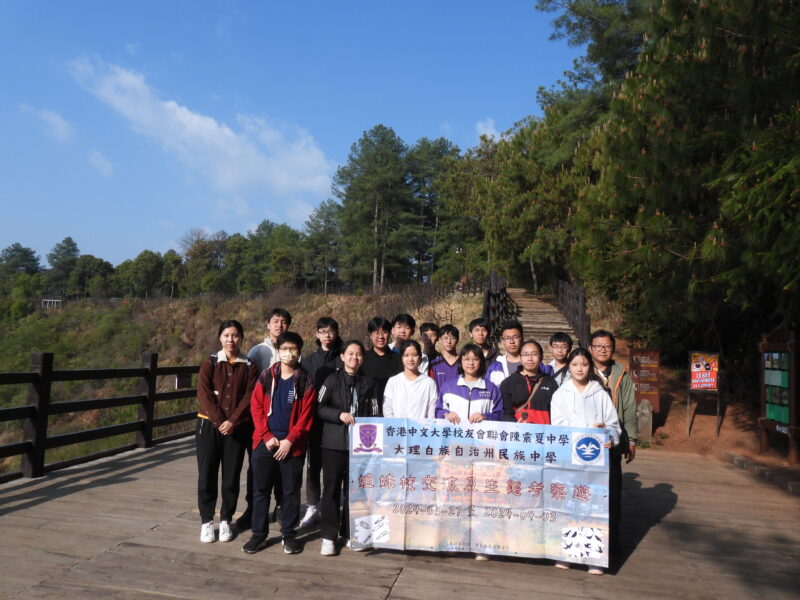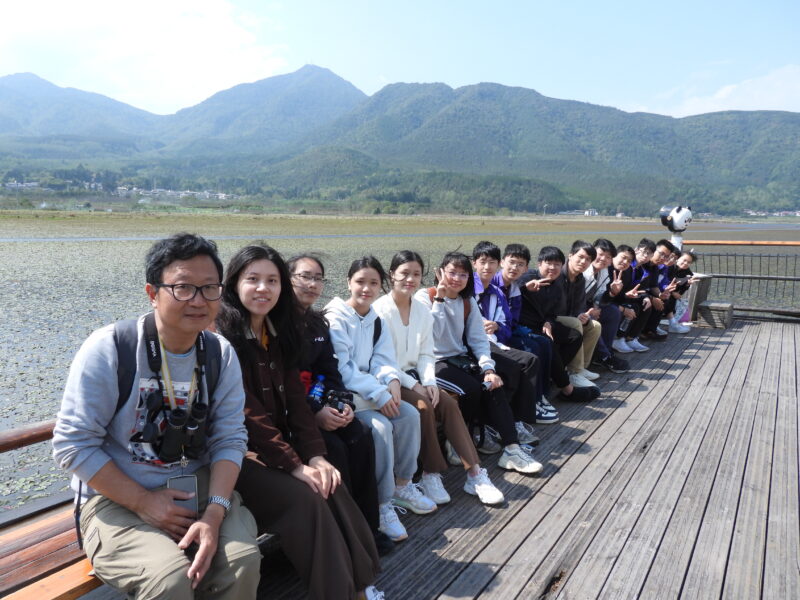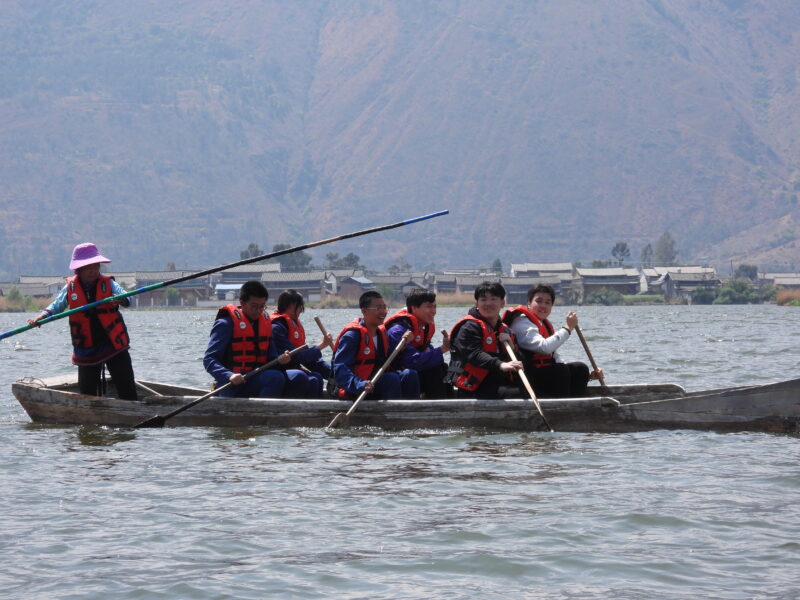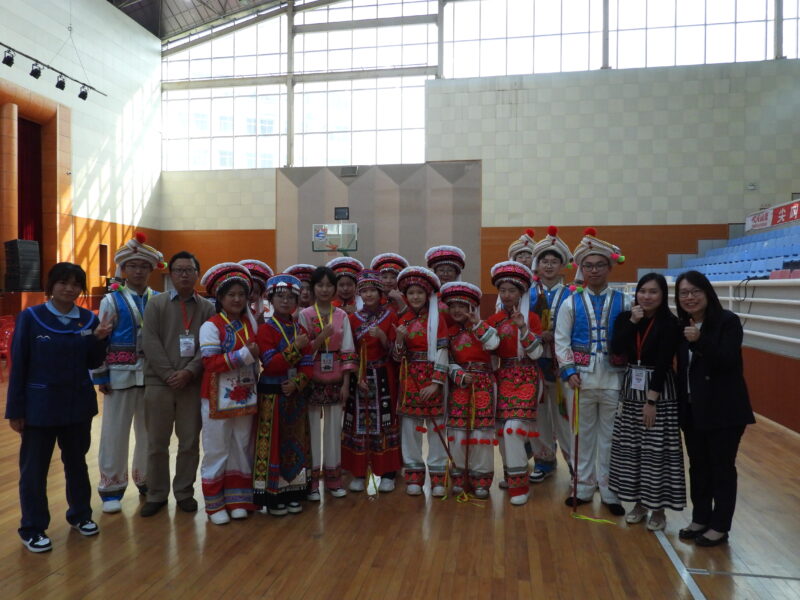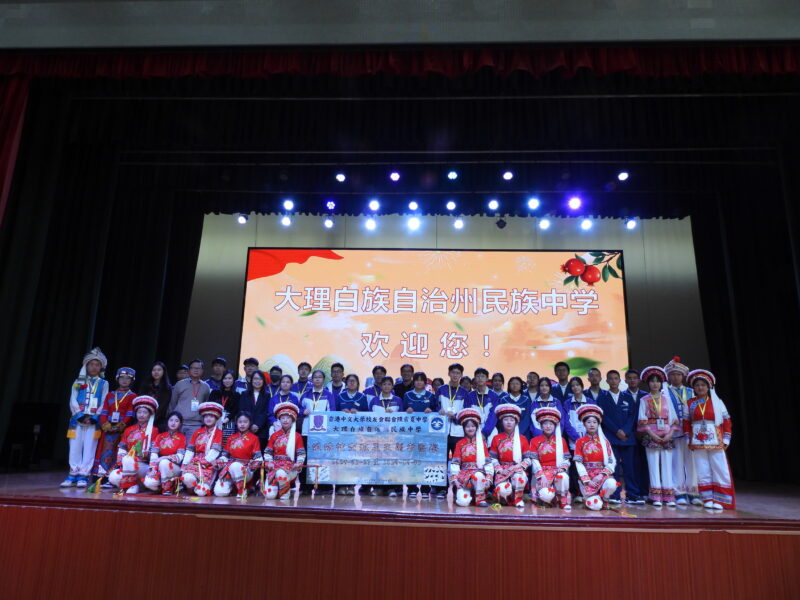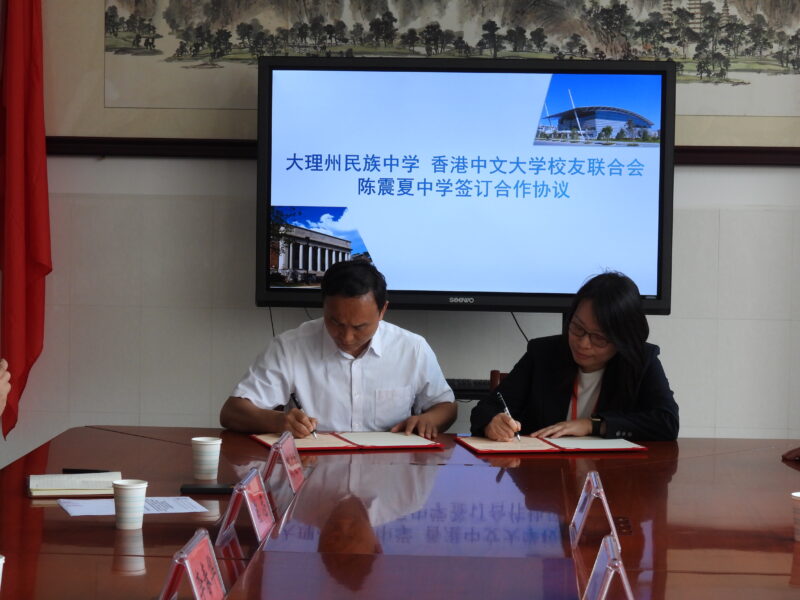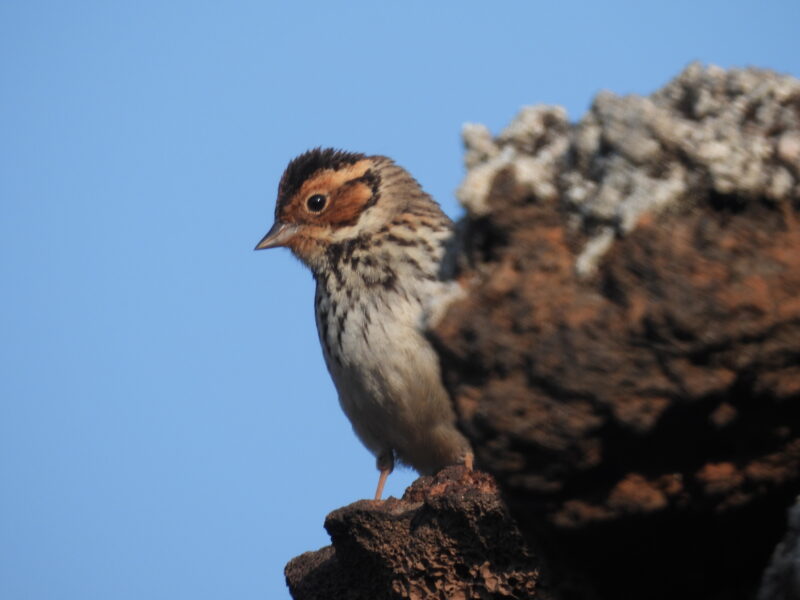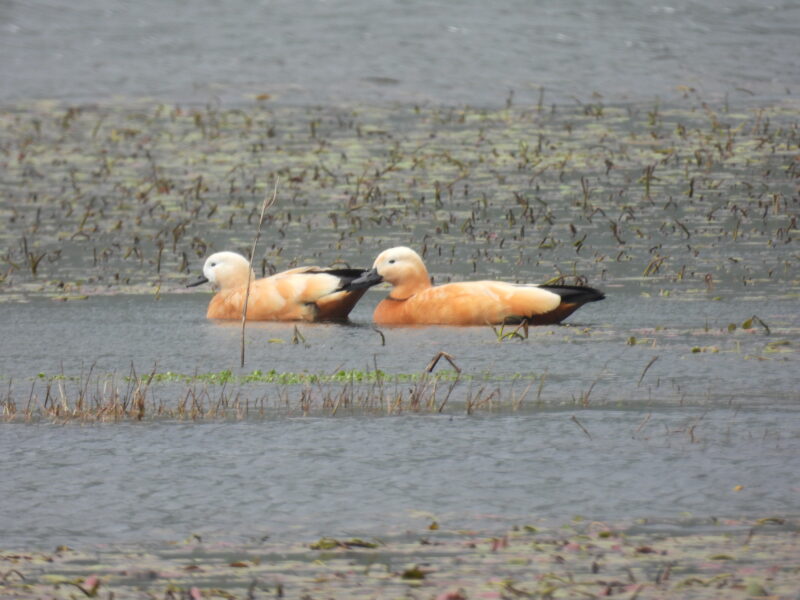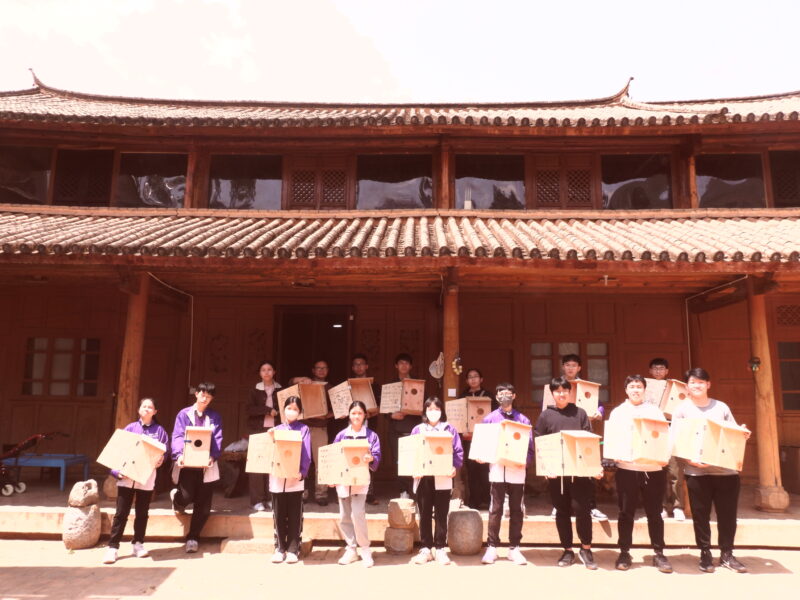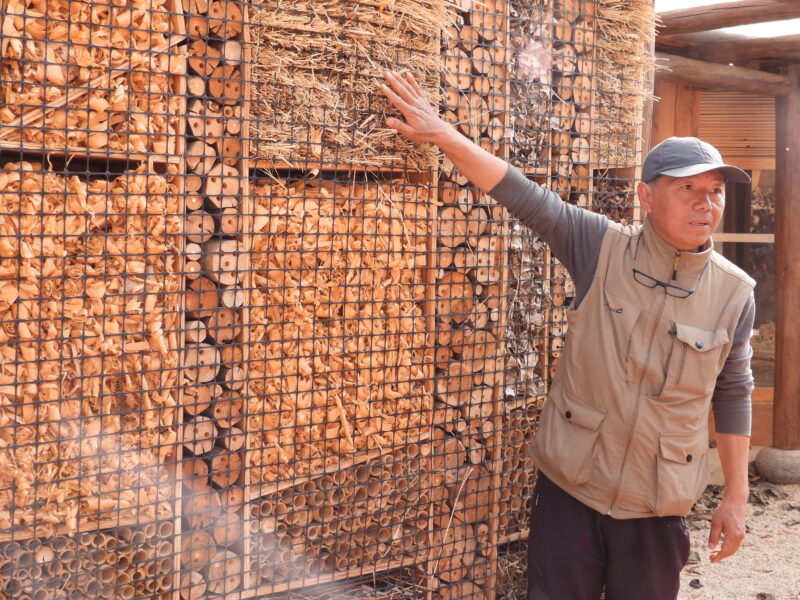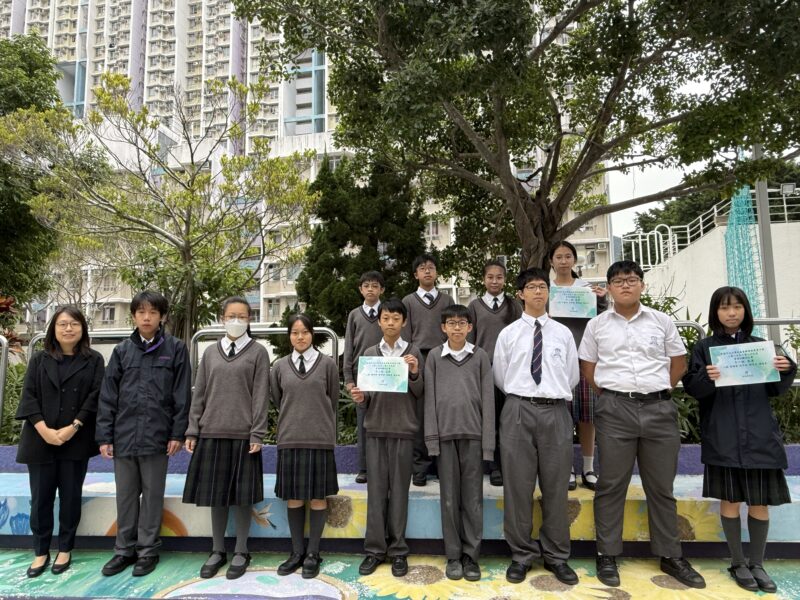From March 27 to April 3 this year, our Principal, Ms Ho Suk-yin, and 18 teachers and students visited our sister school - Yunnan Dali Zhou Ethnic Minority Middle School and conducted ecological investigations in Dali and Tengchong.
The visit to the sister school left a deep impression on the teachers and students. They were deeply impressed by their warm hospitality, their attentiveness and responsiveness in the lessons. The lessons were conducted under a positive learning atmosphere. The students were highly hospitable as they performed dances, played musical instruments, sang for us and even taught them to use the "Bawang whip". Afterwards, the students accompanied us to tour West Lake in Dali, visit local farmers, and have dinner together. They made great efforts to translate the Bai language for us, ensuring that our visit went smoothly. At the dinner venue, students from the Yi ethnic group even moved us by performing the "Cai dance", a national intangible cultural heritage.
Apart from interacting with the teachers and students of the Ethnic Minority Middle School, we also conducted an investigation into the sustainable development of Yunnan. Among the various itineraries, the most profound experience was our learning at the ShitouVillage (Owl Ecological Village) in Dali. The founder of the ecological village, Mr. Lu Wen, has not only been working hard to rescue animals, but in recent years has also been focusing on ecological restoration. His concern is not just for the owls, but for the sustainable development of the entire village. In his lecture, we learned that even in a small corner of a courtyard, one should first consider how not to interfere with it. Fallen leaves that are not cleared away can nurture the bacteria necessary for the ecological cycle, which then leads to the growth of plants, insects, and birds. To attract different insects, he has even built an "insect hotel". To ensure good water quality or suitability, he has arranged appropriate sand and soil for filtration. The surrounding land is managed through organic farming, with owls being used to catch the mice that damage the crops. Mr. Lu Wen hopes to arrange the sale of organic produce to support the sustainable operation of the ecological village. The ecological village also deliberately preserves the architectural characteristics of the Bai ethnic group, providing not only an ecological perspective but also a cultural conservation angle.
The solemn yet deeply moving Tengchong Remembrance Cemetery was another site that left a deep impression on our teachers and students. Tengchong played an important role in the history of the Anti-Japanese War. From May to September 1944, after more than 100 days of fierce battles, the brave Chinese military and civilians finally defeated the invading Japanese army, losing over 10,000 soldiers. The heroic deeds of the soldiers who sacrificed their lives are both inspirational and heartbreaking, This history has left an indelible mark on all of us.
The 8-day itinerary also included visits to Qihua Ridge, Tengchong Volcanic Geothermal National Geopark, Beihai Wetland Nature Reserve, Cangshan Mountain, Haishe Ecological Park, the Three Pagodas of Dali, Erhai Moon Wetland Park, and West Lake in Dali. All these locations had beautiful scenery and we observed a variety of birds and plants, all evidence that the ecological environment of Yunnan is being cared for seriously.
Among the sites visited, the West Lake in Dali was particularly worthwhile as it contains a protected area for the purple swamphen. However, the nearby interviewed farmers expressed that due to legal restrictions, they are unable to cultivate high-value but highly polluting crops, yet fishing and other activities are also prohibited. As a result, the young people have all left to work elsewhere, and the elders can only rely on support from their children to get by. If we factor in the balance between people and the environment, we should try to find ways to enable the local people to participate in conservation work as a means of livelihood. For example, they could serve as managers or interpreters within the paid protected areas. The villagers could also produce handicrafts and souvenirs. The government could play the role of connector and administrator in this process.
The entire trip was very rewarding for both the teachers and students, and has given them a deeper understanding of the country.
